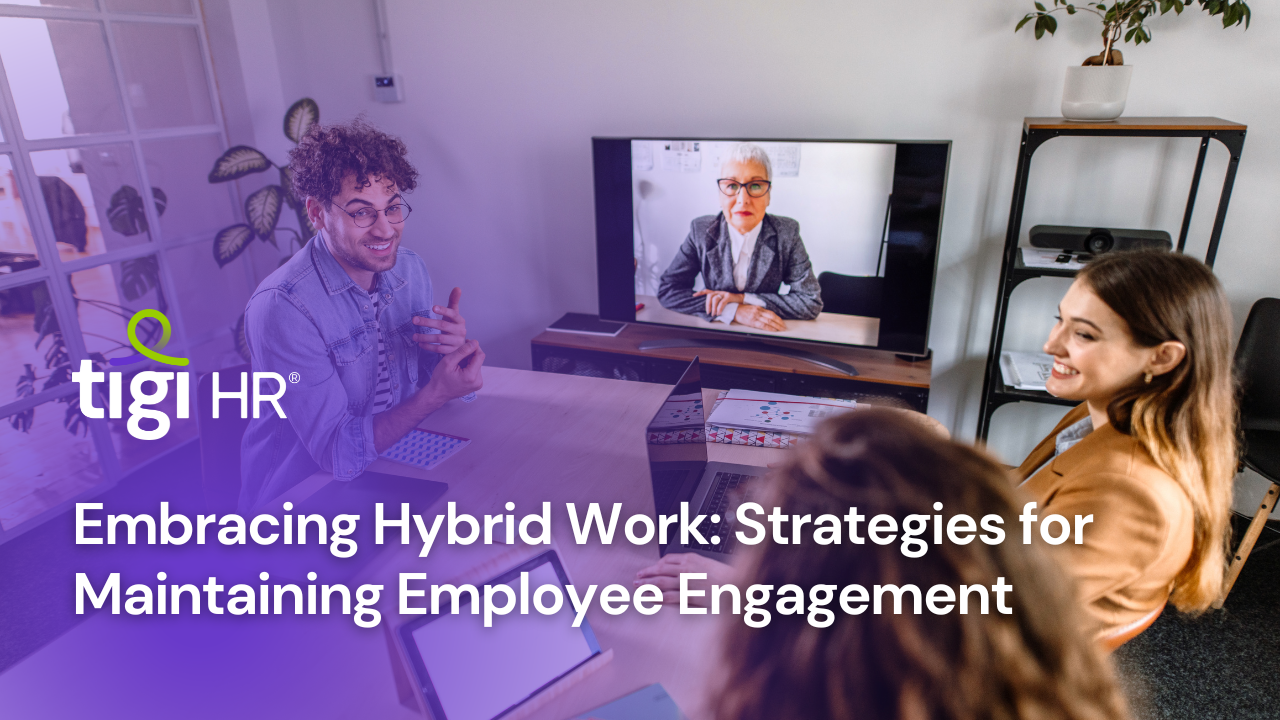The workplace landscape has undergone a seismic shift, and the concept of hybrid work has emerged as a dynamic solution that blends the best of remote and in-office experiences. This new era brings with it a unique set of challenges and opportunities, especially when it comes to maintaining employee engagement. As organizations navigate this uncharted territory, finding effective strategies to keep employees engaged and motivated becomes paramount. This article delves into the strategies that can help organizations successfully embrace hybrid work while ensuring high levels of maintaining employee engagement.
The Hybrid Work Evolution
The traditional 9-to-5 office routine has evolved into a more flexible and adaptive model known as hybrid work. This approach grants employees the autonomy to work both remotely and on-site, balancing productivity with personal preferences. A survey by [Workplace Insights Institute] found that 83% of employees prefer a hybrid work model, highlighting the growing appeal of this approach.
While hybrid work offers numerous benefits, such as improved work-life balance and reduced commute times, it also presents challenges, particularly in maintaining a strong sense of connection, collaboration, and engagement among employees. Organizations must proactively address these challenges to ensure that the hybrid work model remains effective and sustainable.
Fostering Communication and Transparency
Clear and consistent communication is the cornerstone of maintaining engagement in a hybrid work environment. Virtual communication tools, such as video conferencing platforms and messaging apps, have become essential for keeping employees connected regardless of their physical location. Regular team meetings, one-on-one check-ins, and transparent communication about organizational updates help bridge the gap between remote and in-office employees.
According to [Communication Impact Research], organizations that prioritize effective communication are 3 times more likely to have highly engaged employees. This statistic underscores the pivotal role of communication in building trust, alignment, and engagement in a hybrid work setting.
Promoting Inclusivity and Equal Opportunities
Hybrid work has the potential to blur the lines between remote and on-site employees, creating the risk of a divided workforce. To counteract this, organizations must ensure that remote employees are not inadvertently excluded from important discussions, opportunities, or career growth. Equitable access to resources, meetings, and professional development opportunities is critical for maintaining engagement and preventing feelings of isolation.
Research by [Inclusivity Insights Institute] reveals that organizations that prioritize inclusivity in their hybrid work strategy experience a 20% increase in overall employee satisfaction. By promoting equal opportunities and fostering an inclusive environment, organizations can enhance engagement across the entire workforce.
Cultivating a Sense of Belonging
A strong sense of belonging is essential for employee engagement, and it can be challenging to foster in a hybrid work model. To address this, organizations can implement virtual team-building activities, online social events, and recognition programs that celebrate employees’ achievements regardless of their physical location. These initiatives not only create a positive work culture but also strengthen the emotional connection between employees and the organization.
Studies from [Belonging and Engagement Research] indicate that employees who feel a strong sense of belonging are 3.5 times more likely to be engaged in their work. By nurturing a culture of inclusivity and belonging, organizations can bolster engagement and loyalty among both remote and in-office employees.
Encouraging Skill Development and Growth
Hybrid work offers employees more flexibility in managing their schedules, providing an opportunity for organizations to encourage continuous skill development and growth. Organizations can offer virtual training sessions, webinars, and e-learning opportunities to empower employees to enhance their skills and stay relevant in an ever-evolving professional landscape.
A survey conducted by [Skill Development Institute] found that 72% of employees consider access to skill development opportunities a key factor in their job satisfaction. By investing in employees’ professional growth, organizations demonstrate their commitment to their success and engagement.
Balancing Autonomy and Accountability
One of the key advantages of hybrid work is the increased autonomy it offers to employees. However, striking the right balance between autonomy and accountability is essential. Organizations can set clear expectations, define performance metrics, and provide regular feedback to ensure that employees remain aligned with organizational goals and deliverables.
According to [Autonomy and Accountability Study], employees who experience a healthy balance between autonomy and accountability are 1.5 times more likely to be engaged in their work. Establishing this equilibrium empowers employees while maintaining their commitment to achieving results.
Conclusion on Maintaining Employee Engagement
The hybrid work model has reshaped the way organizations operate and has introduced a new dimension to employee engagement. By implementing strategic initiatives that prioritize communication, inclusivity, belonging, skill development, and accountability, organizations can navigate the challenges of hybrid work while fostering a culture of engagement and productivity. As the workplace continues to evolve, organizations that proactively adapt their strategies to support hybrid work will not only attract and retain top talent but also create a workforce that is motivated, connected, and engaged in their roles.





